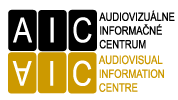Wealth, health and tolerance
[Juraj Jakubisko] made a film about present times in the course of a couple of months, directly in the boiling point of post-revolution re-arrangements of Czecho-Slovakia. He made a film about times of anarchy which we go through on our journey from totalitarianism to democracy, a film about ”wealth which we used to reject and now we worship, about two nations in one state”, as director has said. Money and national awareness have become central themes in the lives of contemporary men.
The film It's Better to Be Wealthy and Healthy Than Poor and Ill concludes his ”trilogy about freedom and happiness“. If in its first and second instalments (Birdies, Orphans and Fools, 1969 and Sitting on a Branch I Am Fine, 1989) the main protagonists were two men and a woman, this time it’s vice versa. ”Times have changed, the same goes for values“ Jakubisko says. ”In these predatory times, when intolerance and a power struggle are at the forefront, it is not tough men who could be heroes, it is women. Sensitive, impulsive and much more vulnerable – but only at first sight.” Men turn coats, theirs and those of times. Women have to constantly orientate themselves and make themselves home in altered maps of their microcosms. The world is reflected in their fate. Jakubisko follows women's fate on the backdrop of times and times on the backdrop of women's fate.
It wouldn't be Jakubisko, if he wasn't developing his favourite motifs of various premonitions, prophecies and visions, mostly when, in connection with post-revolution boom of mysticism, they take on a new dimension. It is via this film that Margit, a fortune teller with telepathic abilities, enters a world inhabited by peculiar old men gifted with special abilities. Only a liberated poetic mind can conjure up a situation where Margit, using her premonition, saves the main female protagonists from a fatal crash with furiously overtaking trucks, only to be instantly robbed of the car she is sitting in, guarding a precious cargo. [Film's protagonists] Nona and Ester find her sleeping on a roundabout. She had a dream in which two angels lifted her and she flew... Jakubisko enhances the real world with mysterious manifestations of the human soul. However, they remain ethereally free and shifting in their space of magical fantasy. Jakubisko laughs at everything that would like to define or canonize them. A poetic soul binds them together with reality through creation of fantastic images, toying with their very existence. They are part of Jakubisko's ”game of foolishness”.
Like a magician who pulls a rabbit out of his hat, with Jakubisko, a paper bird flies out of a can, a vegetation of inflatable plants starts growing rapidly – just for the sake of pure amazement. Reality overlaps with fantasy and Jakubisko provides a glimpse of the gene that is the rudiment of the tissue and the general principle found in particular one. In each of his works, Jakubisko weaves a fantasy net of various intensity. A good many critics have let themselves be fascinated by the extent of Jakubisko's fantastic creations to the extent that they always wonder when reminded by Jakubisko of his completely different side – his interest in reality and present and their naturalistic intensity. But it is harsh reality which Jakubisko melts in its magmatic and ethereal imagery – and in this film, more than ever, he interconnects them with balance.
Criticism often curses the quality of his work with its distance from the depicted era or event. However, Jakubisko's film is a proof of what irreplaceable quality art can take when it doesn't observe reality from a distance, but it looks around, when it doesn't describe a battle, but is a part of it. Jakubisko projects the continuity of his thoughts, not their results. In times of anarchy, human world shows its face. It becomes apparent who is who, the most private becomes public, public becomes private – a broken-up unity of human existence, although temporarily, gets back together, and the life of that moment turns to be somehow ”total“. Human attitude in these times and towards these times holds a significant value for Jakubisko. In times of anarchy, human nature and obvious mechanical relations recreate human society.
Extract from the text written by Ludmila Korecká published in magazine Film a doba, vol. 39, no. 2/1993.
JURAJ JAKUBISKO (1938)
Director's filmography (selection):
upcoming – Perinbaba 2
2008 – Bathory
2004 – Post Coitum
1997 – An Ambiguous Report about the End of the World
1992 – It's Better to Be Wealthy and Healthy Than Poor and Ill
1989 – Sitting on a Branch I Am Fine
1987 – Freckled Max and the Ghosts
1985 – Lady Winter
1983 – The Millennial Bee
1981 – Infidelity in a Slovak Way
1979 – Build a House, Plant a Tree
1970 (1990) – See You in Hell, My Friends
1969 – Birdies, Orphans and Fools
1968 – Deserters and Pilgrims
1967 – The Prime of Life (a.k.a. The Years of Christ)
Related AIC articles:
It's Better to Be Wealthy and Healthy Than Poor and Ill is part of Liberated section at 54th Karlovy Vary IFF.
published:
updated: 24.06.2019



